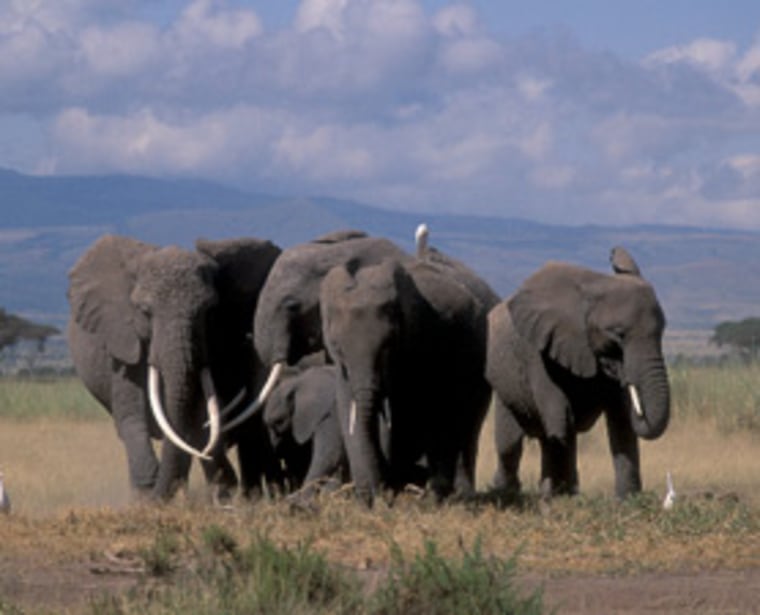Older animals make the best leaders, suggest studies on primates, whales and now elephants.
Advanced age can improve an individual's ability to detect threats, the research found, benefiting others if that individual is a leader.
"The findings highlight the importance of older individuals in natural populations — not only in elephants, but most likely also in other large-brained, long-lived social species, such as whales and primates, where knowledge can be accumulated over time," said Karen McComb, lead author of the study, appearing in the latest Proceedings of the Royal Society B.
McComb, a behavioral ecologist specializing in psychology at the University of Sussex, and colleagues conducted their experiments on 1,500 African elephants living within 58 distinct family groups at Amboseli National Park in Kenya.
Using loudspeakers mounted on a fieldwork vehicle, the researchers played recorded male and female lion roars in the elephants' vicinity. During some experiments, the researchers would play the sounds of three lions roaring at once. Other than humans, lions are the main natural predators of elephants, with powerful male lions being more active hunters. Male lions are, on average, 50 percent larger than female lions.
While all of the elephants reacted more strongly to the sound of three lions, groups led by older matriarchs showed the greatest sensitivity to the more serious threat posed by male lions. These older female leaders, 60 years plus in age, not only listened intently, but they also rallied their group members into defensive maneuvers known as bunching and mobbing where the elephants act like a giant battering ram by charging the lion and harassing it.
"Our work emphasizes the importance of the knowledge that older individuals may possess, which can ultimately lead to benefits for individuals in groups that have older leaders," co-author Graeme Shannon of the University of Sussex told Discovery News.
The research highlights the value of older individuals in elephants — and past work has suggested the same is true in humans. As Shannon points out, prior research on humans has found that "reasoning about social conflicts improves with age despite declines in many forms of cognitive processing."
Human societies in modern times often tend to revere youth culture. Throughout history and even now, however, "older individuals often emerge as leaders in tasks requiring specialized knowledge," the researchers point out.
The pattern appears to hold true for many other species, such as sperm whales, killer whales, broad-winged hawks, ravens and more.
Peter Tyack, a senior scientist in the biology division at Woods Hole Oceanographic Institution, said he wasn't "surprised by the finding that older female elephants are better able to lead their groups. Their increased knowledge, gained over decades, allows them to make better decisions that provide great benefits to their groups."
Joshua Plotnik, an Emory University researcher and elephant expert, pointed out that although the older individuals are not necessarily alpha, their experience and influence often plays a very important role in the social decision-making process.
